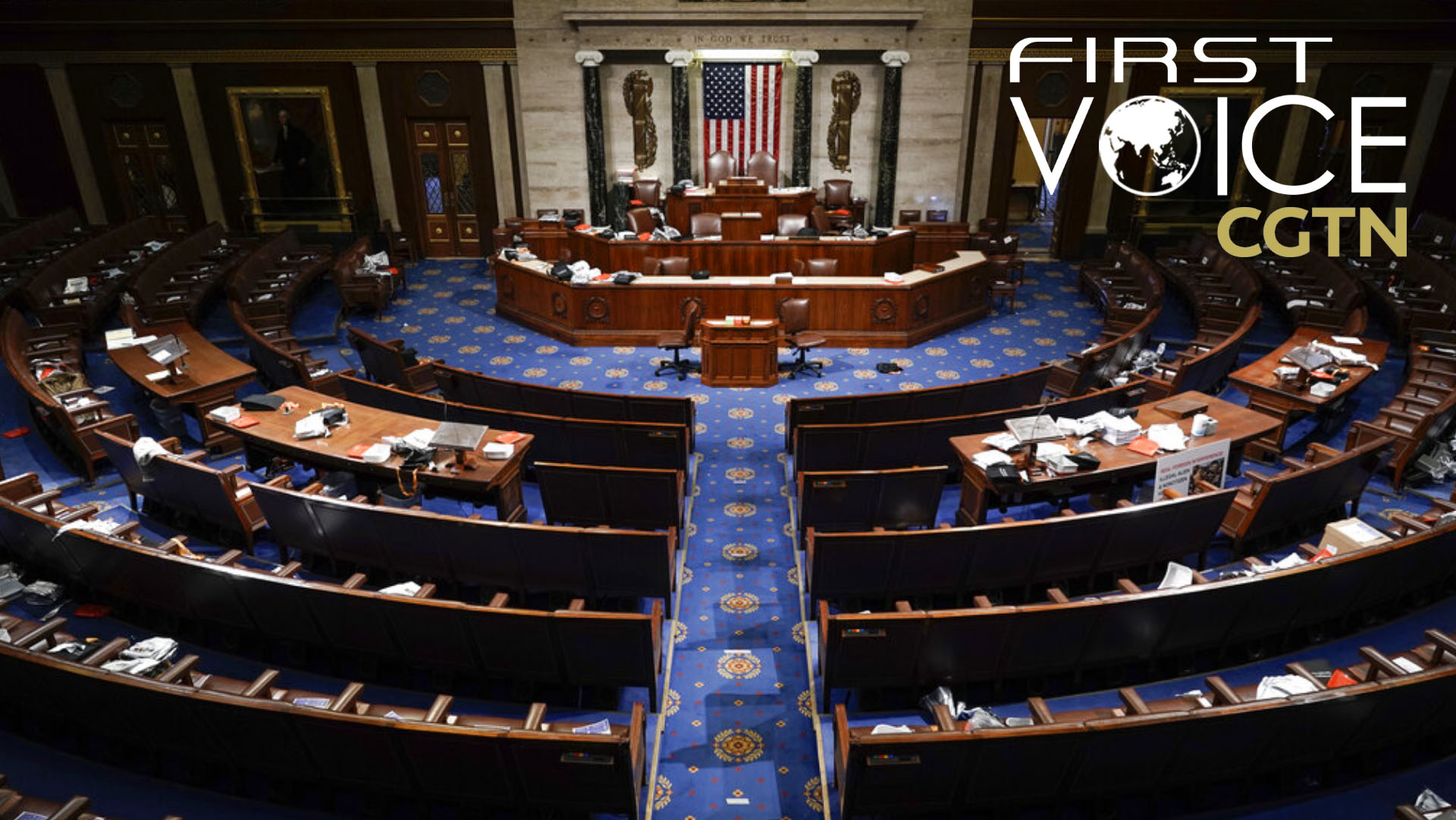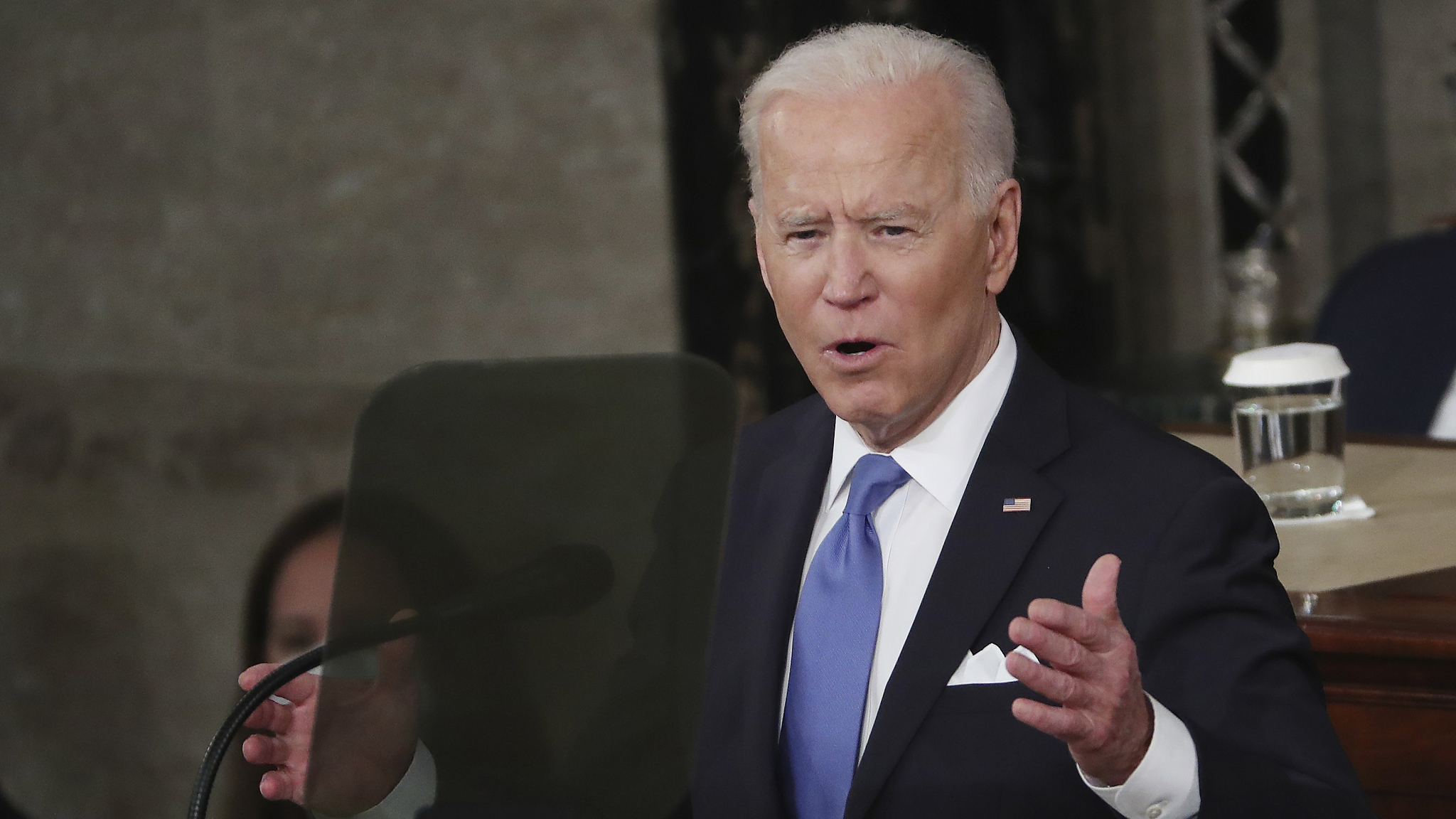
Editor's note: CGTN's First Voice provides instant commentary on breaking stories. The daily column clarifies emerging issues and better defines the news agenda, offering a Chinese perspective on the latest global events.
U.S. President Joe Biden is shifting from using China as a scapegoat to distract attention from America's shortcomings to using China as a foil to unite Americans to get their own house in order.
This subtle change is welcome, but has been too little, too late to stop a wave of violence and hatred against Asian Americans. We can only hope it is soon enough to silence the voice of China hawks who are starting to overtly clamor for war.
Chinese people don't appreciate being cast as the sinister villains from a Hollywood blockbuster that ends with the White forces of good triumphing over evil.
Similar to developing nations around the world, the rise of China is due to the hard work, unity and innovation of its people. Their goal is to create a better future for Chinese people and their families, not to unseat the U.S. and dictate the rules of the world, punishing those who disobey with sanctions or invasion.
In a perfect world, the U.S. would stop vilifying China and twisting its actions to push a domestic agenda.
That being said, it is refreshing that the policy direction of rhetoric of the Biden administration is focusing on improving American competitiveness rather than trying to kneecap competition from China.
It's worth noting that China only recently became a bogeyman in U.S. domestic politics. China was derided by former president Donald Trump mostly to distract Americans from his failures to revive blue-collar jobs and protect people from COVID-19.
Because Trump's rhetoric was so effective, Biden must never appear soft on China in front of voters. Instead, during Biden's first address to a joint session of Congress, he used the threat of Chinese global dominance as a stick to encourage the passage of legislation aiming to improve American competitiveness in the global economy.
Biden repeatedly invoked China to help justify two ambitious domestic spending programs – social welfare for families and infrastructure – that were the main focus of his speech.
For years, the U.S. has complained that China has been using unfair domestic subsidies to support basic research and the development of technology.
In Wednesday's address, Biden painted a different picture, attributing the golden era of U.S. technological advances to federal programs, and calling for a big increase in U.S. investment in research and technological development.

U.S. President Joe Biden speaks to a joint session of Congress in the House Chamber at the U.S. Capitol in Washington, D.C., April 28, 2021. /VCG
U.S. President Joe Biden speaks to a joint session of Congress in the House Chamber at the U.S. Capitol in Washington, D.C., April 28, 2021. /VCG
In contrast to the confrontational language, Biden also highlighted the need for international cooperation and a return to multilateralism.
In a rebuke to his predecessor, Biden said the U.S. must not turn inward again, but needs to work with other nations to fight global challenges such as terrorism, nuclear proliferation, mass migration, cybersecurity, climate change and pandemics.
These are all areas where China and the U.S. have cooperated in the past, and where the two countries must work together in the future for the sake of all humanity.
Although Biden, following the pattern of earlier statements by his Secretary of State Antony Blinken, has been trying to cool geopolitical tensions by framing China as a "competitor" rather than an enemy, he did not completely jettison Cold War language.
In particular, Biden warned that the U.S. would keep a NATO-like military presence in the Indo-Pacific region, and said the U.S. would not back away from talking about human rights.
Cold War rhetoric is alarming. A small number of individual officials, politicians and commentators have started to beat the drums of war by making inflammatory statements about China that serve no purpose but provoke.
This kind of language shuts down communication, dehumanizes Chinese people, and attempts to make war seem heroic and valorous, hiding its true nature as wasteful and pointless.
Sadly, talk of war tends to spread like a virus, and can become a self-fulfilling prophesy, especially when spread by voices in prominent national media or by officials. .
Biden's use of China to scare Americans so he can achieve his own domestic policy goals is regrettable.
However, his shift away from blaming China for every ill that plagues America is important. His focus on multilateralism and making the U.S. more competitive is commendable.
The entire world can only hope that Biden's move has come in time to reign in the wave of hate, unreason and distrust unleashed by his predecessor's rhetoric and actions, and get the two countries back on the path of dialogue before it is too late.
(If you want to contribute and have specific expertise, please contact us at opinions@cgtn.com.)

